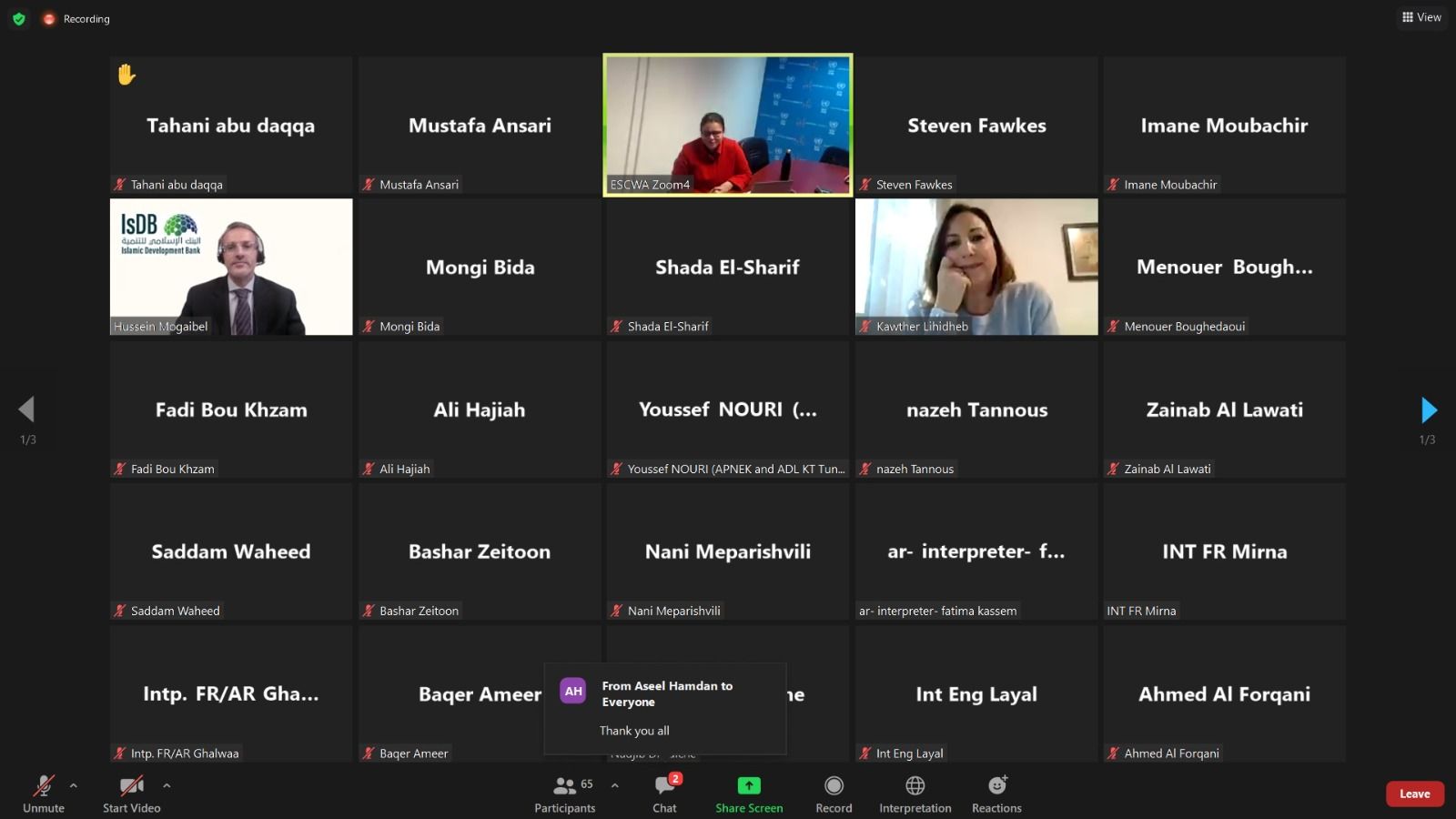ESCWA and the Islamic Development Bank are organizing a webinar on “Financing the upscaling of building energy efficiency programmes in the Arab Region”. Hosting main stakeholders and speakers from international organizations, the event aims to raise awareness on effective financing instruments for investment in national energy efficiency programmes in the building sector, and on integrating related projects and programmes into national development plans. The webinar highlights strategies to address the barriers to upscaling energy efficiency in the Arab region.
The moderated panel discussed a wide range of topics within the context of EE financing. Panellists shared examples from Tunisia, the Netherlands and Algeria and emphasised the importance of putting in place regulatory and institutional frameworks to facilitate the whole programme. The financing of EE in buildings is a very diverse market, meaning that there is no one size fits all, and solutions need to be tailored, including those for residential, commercial, and services, as well as the existing building stock and those yet to be built. Panellists also alluded to the importance of leveraging funds dedicated to sustainable energy to create incentives and undertaking full assessment of the cost of measures and payback periods. Experiences from the Netherlands also shed light on developing the entire value chain, overcoming any obstacles and ensuring that incentives across the value chain are aligned, so that all parties benefit. In some parts of the region, communication remains a major hurdle undermining the value of EE.
